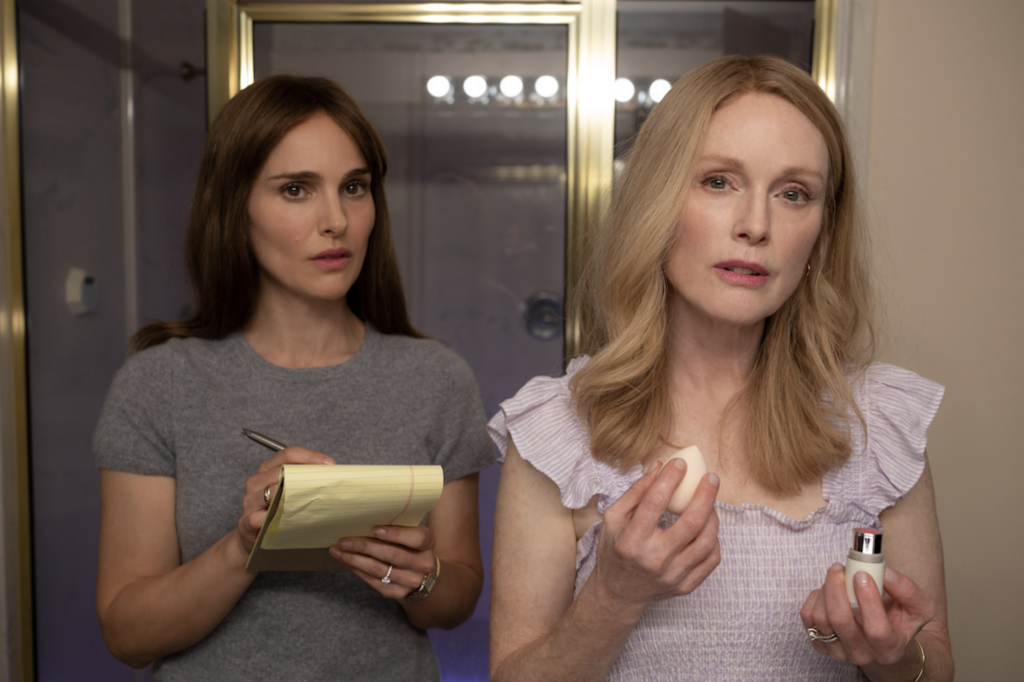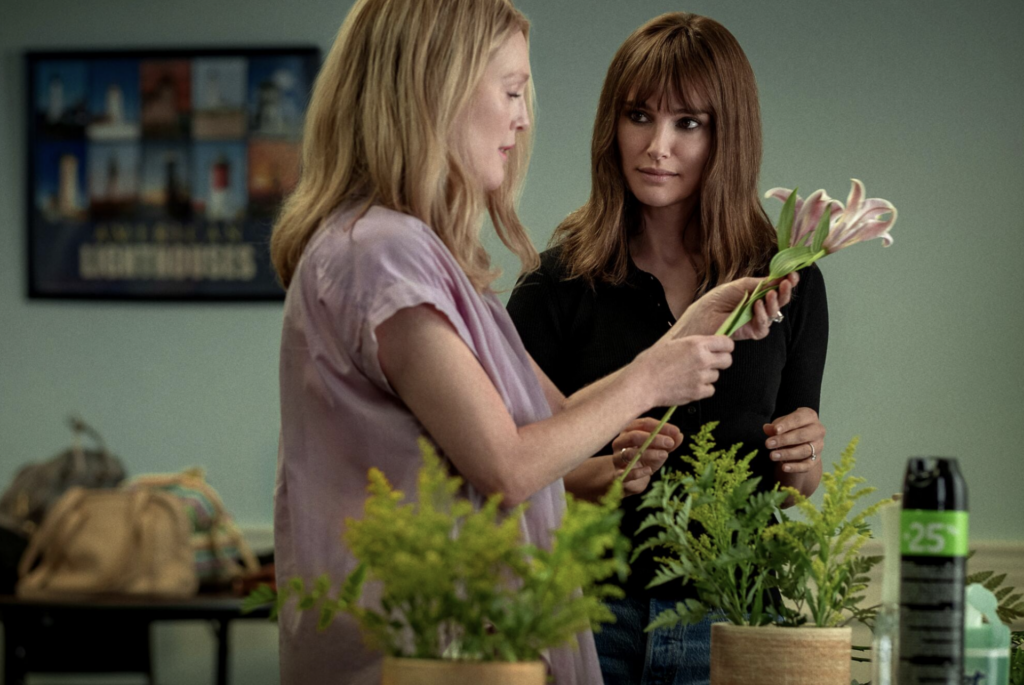‘That’s my goal!’: Watch Julianne Moore and Natalie Portman’s epic reaction as May December dubbed ‘Gay Christmas’
Exclusive: "There is that inherent queerness to it" says Natalie of May December, as she and her co-stars chat to Attitude about their camp and darkly fabulous Oscar contender

Julianne Moore and Natalie Portman have wholeheartedly embraced their new film May December being dubbed ‘Gay Christmas’.
Speaking to Attitude about the awards contender, directed by Carol‘s Todd Haynes, the pair – plus co-star Charles Melton – appeared delighted with the tag.
“That’s my dream; that’s my goal,” said Natalie of the ‘Gay Christmas’ tag, as Julianne added: “I love that! That’s the best.”
“I honestly think the gay community has amazing taste,” she went on. “So I’m very flattered!”
Some online have called the film ‘Gay Christmas’ as it stars two women beloved by the gays, as well as for its camp, melodramatic nature. (Think Desperate Housewives meets Notes On a Scandal.) There’s also palpable queer chemistry between the two main characters – more on which later.
May December follows a TV actress called Elizabeth, played by Natalie, studying a real person, Gracie, played by Julianne, for a film. Gracie is a sex offender who started her relationship with now-husband Joe 20 years before, when he was a seventh-grader.
“There is that inherent queerness to it” Natalie Portman on May December
The story is loosely based on the real-life marriage of Vili Fualaau and the late Mary Kay Letourneau.

In their Attitude interview, Natalie and Julianne reflected on the film’s underlying queerness, while Charles described approaching the film’s heavy themes with a healthy dose of dark humour.
May December has been called Gay Christmas…
Natalie: My favourite. My favourite.
Julianne: I love that! That’s the best.
…because it’s camp and darkly fabulous, and stars two women the gays love. Do you welcome that description?
Natalie: Yes. That’s my dream; that’s my goal.

Julianne: I honestly think the gay community has amazing taste, so I’m very flattered, yes.
Natalie: Yes. Same.
Queer subtext in art, as in life, can be subtle. Elizabeth and Gracie, it’s hinted at, have an attraction to each other. And that relates to the film’s theme: power. How intentional was the queering of that dynamic, if at all?
Natalie: I think a lot of queerness, as far as I understand it, also has to do with stepping out of prescribed societal boundaries that are imposed upon you. I think both of these characters, both of these women, are so intent on writing their own narratives. Declaring their own identity. Creating their own story. That’s really this dynamic between them – there is that inherent queerness to it. As Julie has been saying a lot as well, there’s a dynamic where seduction is one of the strategies they’re using to try and gain control over the narrative.
Julianne: It’s really a struggle for dominance. They’ll use whatever they can. I think they’re both seductive individuals too. Both very much know how to perform femininity. I think one of the characteristics of performative femininity is seduction. They’re out there throwing it at each other.
Did playing with that ambiguity remind you of Black Swan at all, Natalie, and you, Julianne, of The Hours?
Natalie: I think there are definitely similar questions about performance and identity. And also, the use of mirrors as a cinematic tool that are both in Black Swan and this film, for sure.
Julianne: For me, in terms of The Hours and May December, I’d say these women who might be trapped in their own happy endings. In the sense they are so gender-identified, and so cultured in their gender, that they’ve ended up in places that might be wildly uncomfortable for them. I think that’s an interesting thing, to see how damaging that identification can be, both for men and women. Because Gracie genderises Joe. She makes him an adult before he can be one.
How did you humorously address sensitive subjects – such as age-gap relationships and abuse – without it being offensive? It’s done so successfully and delicately… Was the process of doing that a lot about trusting each other?
Charles: I think a lot of it came down to the trust we had in Todd, and the filmmaker that he is. And really, the script that Samy [Burch] wrote. The complexity of all these characters, who they were, how they navigate in their lives where we find them. Gracie and Joe preparing for their kids to graduate. Joe and his reality: the immense responsibility he had at such a young age, and how that led to creating this adult-child in order to survive and navigate his own life. He almost has this awakening to his own identity. And then, Elizabeth coming into their lives, sparking a lot of these questions that maybe the audience is asking, but Joe hasn’t had the chance to ask.
May December is availble to stream on Sky Cinema now.
